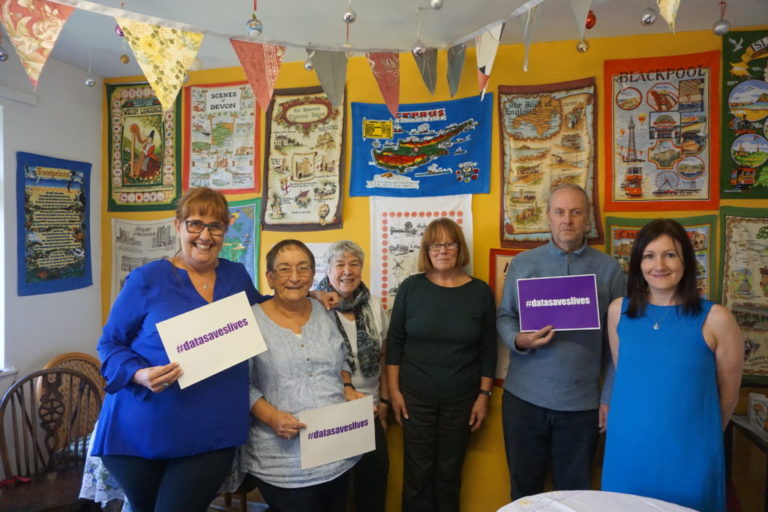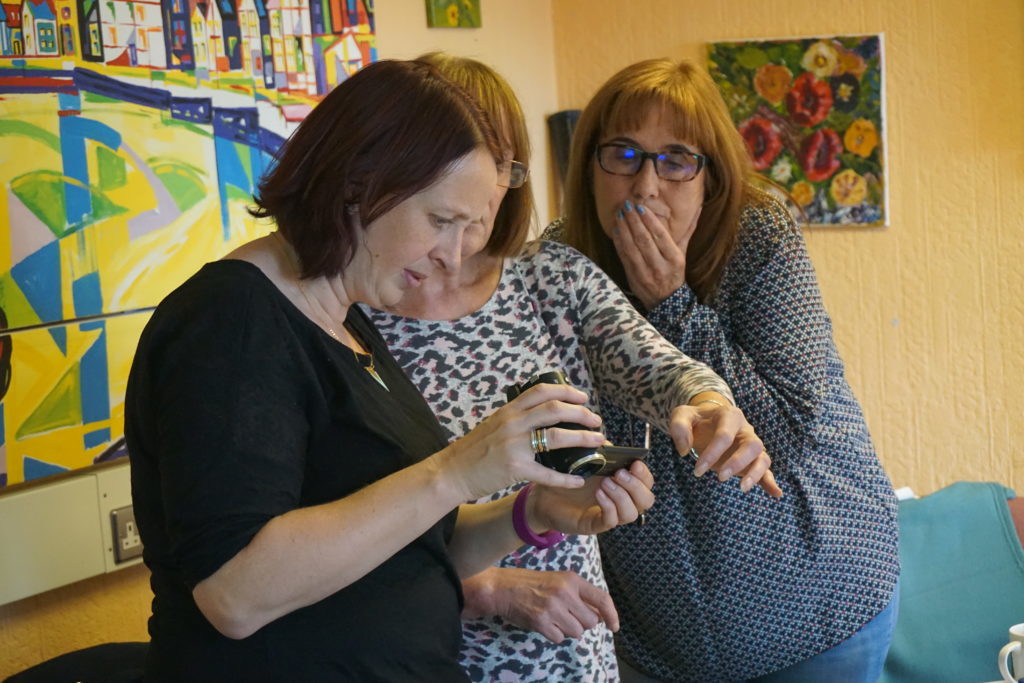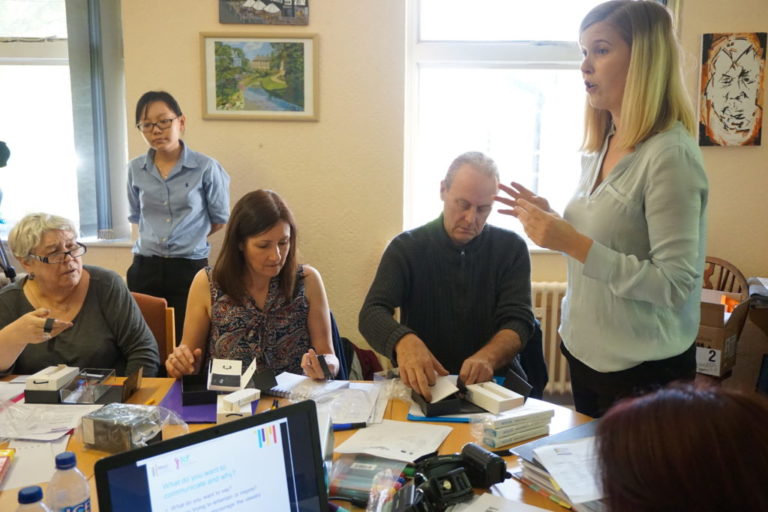Download case study
Research lead: Lamiece Hassan, University of Manchester
Researchers from The University of Manchester have worked with groups of senior citizens, training them to share their health data stories in video blogs

Research lead: Lamiece Hassan, University of Manchester
Researchers from The University of Manchester have worked with groups of senior citizens, training them to share their health data stories in video blogs

The Challenge
Using technology to monitor health in the community has the potential to support older people in staying healthy and independent. But to come up with solutions that serve this population, we need to know older people’s views on health data, and ensure that this is seen as a way to be in control of their wellbeing and care. To investigate that, a citizen engagement project was planned to capture older people’s thoughts and opinions on health data through community reports.
The Research
A total of 18 people aged 55 and over were recruited from Greater Manchester to take part in local Community Reporters schemes, which are part of a European Community Reporters network. Community reporting enables people to share personal stories on a topic by creating and sharing video recordings, either their own or by interviewing others.
The participants in our project were given the topic of health data and were taught how to think about storytelling through film, how to edit their footage and upload their final reports.
During an initial briefing session, they were introduced to the health data theme. They also had the opportunity to collect health data themselves by wearing an activity tracker over the course of the project. Interviews were arranged with people that took part in a senior exercise class who were also testing the trackers.
All community reports resulting from the training were uploaded onto the international Community Reporters website.

The Results
All participants created a community report, even though some of them said they had no or limited experience with technology prior to the training.
Overall, enthusiasm levels to engage with health data research and the technology were high. From the reports and additional feedback sessions, we learned that older people are motivated to collect and use health data because: they have an intrinsic interest in their own health data, health data helps them take control in their communication with healthcare professionals, and they feel that devices such as the activity tracker fit their positive attitude towards personal health.
Feeling unsure and apprehensive about being ill equipped to use the data and technology proved to be a common theme, with many participants highlighting the need for dedicated support when thinking about using their health data in the future.
Having targets set through the trackers facilitated interesting discussions around it forming unrealistic expectations about activity levels, an unwanted interference in daily life, and how it may promote healthy behaviour.

The Impact
Community reporting proved to be a suitable method for older people to express their views on health data, while also equipping them with the skills to use technology and create videos to tell personal stories in their own environment.
The project built up a network of active reporters in the community, with many planning to carry on creating content after researchers had finished the project.
Although some may need support, the experience proved that older people are motivated and able to use health data for their own benefit, and are willing to engage in health data research.